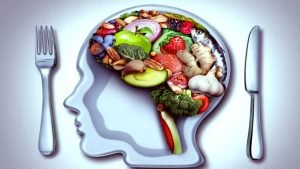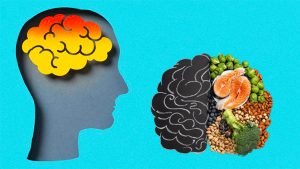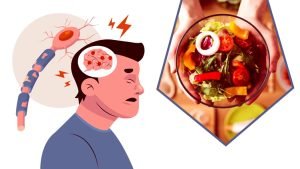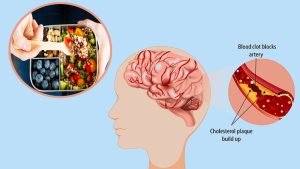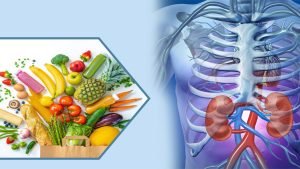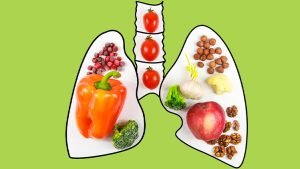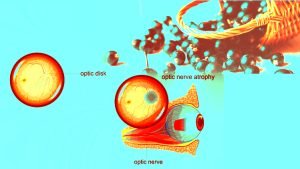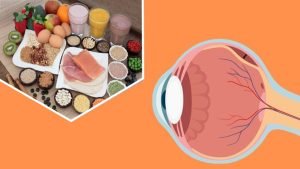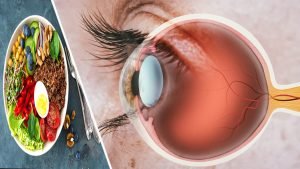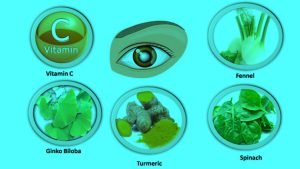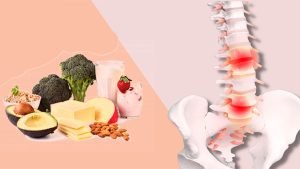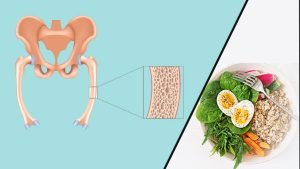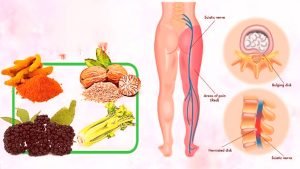Proper nutrition is central to the success of stem cell therapy. Proper nutrition prepares the body to respond better to treatment, aids healing and recovery, and promotes faster recovery. Proper nutrition guarantees that the immune system is boosted, energy is increased, and the body gets all essential nutrients throughout therapy and after it.
We understand at Stem Cell Care India that each patient has a unique requirement. That is the reason why we incorporate individualized nutritional guidance in our consultation procedure. Our experts help individuals create simple and effective diet plans that work towards overall wellness and enhance the effectiveness of stem cell therapy.
Here are the benefits of the right diet plan:
- Supports cellular repair: Nutrients such as essential amino acids, powerful antioxidants, and vital micronutrients provide the building blocks. It helps in tissue repair, promoting regeneration, maintaining cellular integrity, and helping the body recover effectively.
- Strengthens immunity: Consuming a nutrient-dense diet rich in vitamins, minerals, and bioactive compounds enhances the body’s immune defenses. It enables it to fight infections more efficiently, prevent illnesses, and maintain overall health and resilience during recovery or treatment.
- Controls inflammation: Anti-inflammatory foods, including omega-3 fatty acids, polyphenols, and phytonutrients. It helps to reduce chronic inflammation, creating an optimal internal environment that supports healing, improves stem cell function, and enhances the body’s natural regenerative processes.
- Maintains stable energy: Balanced meals with the right proportions of carbohydrates, proteins, and healthy fats provide consistent energy throughout the day. It prevents fatigue, supports mental focus, and ensures the body has sufficient fuel for physical activity and recovery.
- Improves overall treatment response: A well-nourished body promotes better circulation, accelerates tissue healing, and enhances recovery, leading to improved physical outcomes, stronger resilience, and more predictable responses to medical therapies and regenerative treatments.
By considering nutritional issues, patients can build a better body, recover faster, and enjoy long-term health. A well-designed diet is not just an added approach, it is essential for achieving the highest level of benefit from stem cell treatment.
Why Nutrition Matters in Stem Cell Therapy?
A healthy body creates a favorable environment where stem cells can function optimally. A proper diet supplies the body with essential nutrients for cellular repair, immune function, and balance of energy. If the body has adequate fuel, the stem cells can repair damaged tissues with greater efficiency and facilitate the healing process. Proper nutrition also manages inflammation, aids in quicker tissue repair, and enhances overall treatment results.
Stem cells work best in a well-fed body, and diet is a significant component of therapy. Nutrition isn’t simply eating right, it’s providing your body with the nourishment it requires to heal itself. By emphasizing a balanced and nutritious diet, patients can provide the internal conditions for stem cells to work at peak efficiency, maximizing recovery and increasing the efficacy of stem cell therapy.
The Goals of a Therapeutic Diet Plan
Therapeutic dieting is not just the consumption of healthy food. A therapeutic diet is a planned meal regime that helps to regulate health conditions, assist in treatment, and improve overall well-being. The main intention is to provide the body with adequate nutrients in order to heal, get stronger, and perform well. Each person’s needs are different, therefore a therapeutic diet is often customized based on their medical condition, age, lifestyle, and treatment schedule. These are the primary goals of a therapeutic diet:
- Aid Recovery and Healing: A therapeutic diet provides the required nutrients the body needs to recover from disease or surgery. It aids in tissue repair, protects against infection, and speeds up healing. Through the provision of the correct quantity of vitamins, minerals, and proteins, the diet allows for healing to be more effective.
- Regulate Disease Symptoms: There are diets that can reduce symptoms of chronic diseases such as diabetes, heart disease, kidney disease, or gastrointestinal conditions. A treatment diet is formulated to regulate blood sugar, lower cholesterol, improve digestion, or reduce inflammation.
- Maintain a Healthy Weight: Weight regulation is a universal goal of medical diets. Overweight or underweight may affect treatment and convalescence. Sufficient nutrition supports a healthy weight, enhancing overall health and the effectiveness of medical interventions.
- Enhance Immune Function: A sound immune system is required for the fight against infection and convalescence. A healing diet is comprised of nutrients that contribute to immune strengthening, such as vitamins, minerals, antioxidants, and proteins.
- Prevent Complications: Proper foods can prevent other health complications. For example, controlling the intake of sugar and fats can prevent heart or kidney complications for diabetics. A therapeutic diet prevents the risk of long-term chronic disease complications.
- Encourage Long-Term Health: In addition to the elimination of the immediate symptoms, therapeutic diets focus on long-term health. They encourage behaviors that support overall wellness, increase energy, and enhance quality of life.
Personalized Nutrition for Chronic Conditions
The patients who go to Stem Cell Care India typically have a myriad of different chronic diseases, including neurological, autoimmune, orthopedic, or metabolic. Depending on the condition, it’s going to impact the body in a different way. They may alter food breakdown by the body, nutrient utilization, and sensitivity to diet. Due to this, one-size-fits-all nutrition can be ineffective and even detrimental at times.
At Stem Cell Care India, we recognize that each patient is different. That is why we provide one-on-one nutrition consultations that are specifically designed for each individual. Our method is based on the patient’s full medical history and current diagnosis. We also take into consideration current medications and recent laboratory values so that dietary advice will be safe and effective.
Nutrition planning is also determined by the type of stem cell therapy prescribed, as various therapies may have distinct nutritional needs. Additional considerations such as age, weight, and desired goals of recovery are all included in the plan with special care.
This individualized approach guarantees that each patient receives a diet plan that will benefit their body, foster healing, and safely interact with stem cell therapy. Focusing on individualized nutrition, we will enhance overall health, facilitate recovery, and assist patients in experiencing more favorable long-term results.
Patients can be assured that with this careful, individualized approach, their nutrition benefits their therapy, boosts energy, and is beneficial to their overall health.
What Our Personalized Nutrition Approach Includes?
Nutrition is a crucial factor in helping your stem cell therapy and overall recovery. That’s why our customized patient care guarantees that each patient gets a diet plan which is specifically designed according to their medical and lifestyle needs. It helps them in facilitating the recovery to make it quicker and the results to be better and last longer.
- Detailed Medical Evaluation: A thorough review of your medical history, diagnoses, and any other conditions that may be present.
- Medication & Lab Analysis: It makes sure that your diet is safe and fully compatible with the treatments that are going on.
- Condition-Specific Nutrition: Neurological, autoimmune, degenerative, and metabolic disorders diet plans made from scratch.
- Therapy-Based Customization: Food choices are made based on the different types of stem cell therapy that are given.
- Lifestyle & Age Considerations: The plans, which are based on age, weight, activity level, and recovery goals, will help you get the most out of your therapy.







